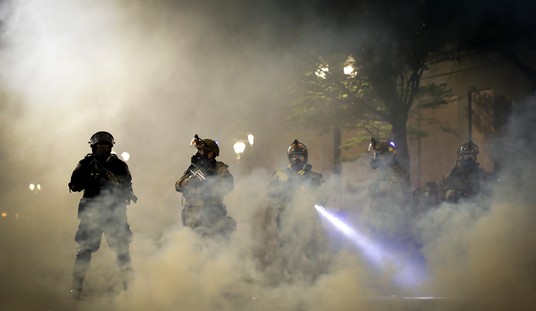As the late Paul Harvey was fond of saying, "It's not one world."
There is no subject where this is more appropriate than laws and policies dealing with LGBTQ issues. In the United States, for example, gay couples may marry; they can adopt children; they suffer no legal discrimination in hiring, housing, holding elected or appointed office, or anywhere else. For anyone with enough good sense to pound sand, "equal rights for LGBTQ" people have been achieved for some time; it is no longer "equal rights" that the extreme elements of the LGBTQ community are seeking; not tolerance, nor even acceptance, but celebration. And for many Americans, that's a bridge too far.
Honestly, though, American LGBTQ people should appreciate just how good they have it -- and if they doubt that, they need only look to Uganda. Uganda has not only outlawed homosexuality, but the Anti-Homosexuality Act, which became law with President Yoweri Museveni's signature in 2023, outlawed even attempted homosexual behavior.
This week, a ruling by the African nation's Constitutional Court upheld it:
Ugandan gay rights activists asked the international community to mount more pressure on the government of Uganda to repeal an anti-gay law which the country’s Constitutional Court refused to nullify on Wednesday.
Activist Frank Mugisha said Tuesday’s ruling was “wrong and deplorable.”
“This ruling should result in further restrictions to donor funding for Uganda — no donor should be funding anti-LGBTQ+ hate and human rights violations,” said Mugisha.
No matter where you land on this contentious issue, any reasonable person will look at Uganda's laws and see that the penalties are extreme, not to put too fine a point on it.
The court upheld a law that allows the death penalty for “aggravated homosexuality,” and up to 14 years in prison for a suspect convicted of “attempted aggravated homosexuality.” The offense of “attempted homosexuality” is punishable by up to 10 years.
President Yoweri Museveni signed the Anti-Homosexuality Act into law in May last year. It’s supported by many in the East African country but widely condemned by rights groups and others abroad.
Homosexuality was already illegal in Uganda, but the new law, one supposes, made it more illegal.
Homosexuality was already illegal in Uganda under a colonial-era law criminalizing sexual activity “against the order of nature.” The punishment for that offense is life imprisonment.
Homosexuality (and, presumably, the other colors of the LGBTQ rainbow) is illegal in most of Africa and the Middle East, along with a few other places.
See Related: The Division Within the LGBT Community Continues to Grow
Compare and contrast that to the United States - or Canada - or almost anywhere in Europe.
Likely, most Americans don't really care much about how people live, as long as they don't try to force their life choices on other people. My own take on social issues hasn't changed much for around 50 years now; I just simply don't care much about what people do, as long as they leave me alone. But leaving people alone doesn't include blocking roadways to protest, pushing LGBTQ materials in schools, or demanding we acknowledge how brave and stunning these people are, as though being a gay man or lesbian woman is somehow akin to storming the beaches at Normandy. And leaving people alone sure as all get out doesn't include suddenly deciding that it's cool to let men compete on women's sports teams, no matter how they "identify."
Social movements always seem to survive to the point of absurdity. The gay rights movement is no exception; at first gay people sought tolerance and marriage rights, and indeed most of them were content to have that. But there always seems to be a fringe on every social movement, and this one is no exception; "LGB" became "LGBTQ+" and every oddball "gender identity" was suddenly on the table, and activists sought not tolerance but joyous celebration of their lifestyles.
They should instead take a look at Uganda, and be grateful that they live in the United States.














